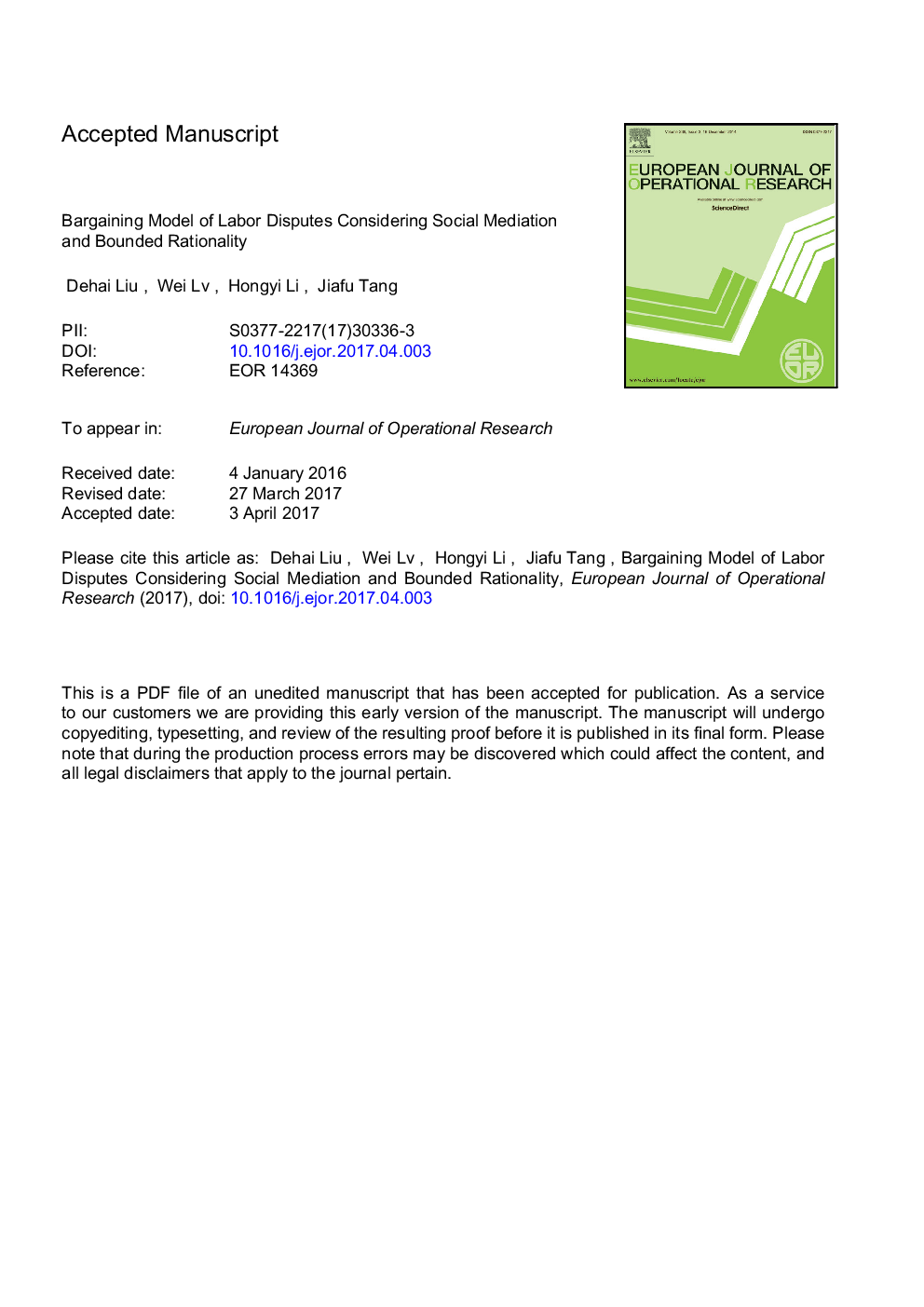| Article ID | Journal | Published Year | Pages | File Type |
|---|---|---|---|---|
| 4959587 | European Journal of Operational Research | 2017 | 27 Pages |
Abstract
Due to the characteristics of bounded rationality for labor dispute mass emergencies in China, the PerlesâMaschler (MâP) solution is applied to analyze the bargaining process between the employer and the employees. Considering that social mediation is a treatment method for labor dispute mass emergencies with Chinese characteristics, this paper compares the Nash solution for social mediation, the KalaiâSmorodinsky (KâS) solution for rational bargaining based on bargaining power, and the MâP solution for bounded rationality search. The results show that the final outcome for labor disputes not only depends on the different treatment models but also has the feature of “path dependence”. The Nash solution for social mediation can reach an outcome that benefits both the employees and the employer. By taking advantage of the social mediation in laborâcapital conflicts and building a three-party mechanism for labor unions to take part in the negotiation, we can obtain a winâwin outcome that can maintain both the employees' benefits and rights, and the employer's productivity as well.
Related Topics
Physical Sciences and Engineering
Computer Science
Computer Science (General)
Authors
Liu Dehai, Lv Wei, Li Hongyi, Tang Jiafu,
